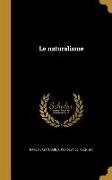Mikhail Bakhtin
BücherAngebote / Angebote:
This timely and comprehensive collection covers the contribution and significance of the famed Russian social and cultural theorist, Mikhail M. Bakhtin (1895-1975), as well as the work of other central members of the so-called 'Bakhtin Circle', especially Voloshinov and Medvedev. The material is organized thematically to provide a contextual basis of Bakhtin's thought and his central influences, including an investigation of the key concepts in Bakhtin's work (such as aesthetics, carnival, dialogism, the chronotope, and ethics), the major debates and interpretations around Bakhtin's writings, comparisons between Bakhtin and other significant sociocultural theorists, notably Foucault, Derrida, Habermas and Gramsci, and appropriations and applications of Bakhtin's ideas in such diverse fields as anthropology, geography, cultural studies and psychology. This unparalleled collection provides readers with the best secondary work on Bakhtin. It enriches our understanding of this prolific and multi-dimensional figure whose contribution stretches over the fields of cultural studies, linguistics, social philosophy, sociology and beyond.
The 4 volumes are divided into the following parts:
Vol 1
Part 1: Bakhtin and his Circle
This section includes discussions of Bakhtin's biography and evaluations of his significance. Gathered together here are papers by Bocharov on conversations with Bakhtin, Holquist on the life of Bakhtin, Steinglass on the authorship debate, Parrington on Voloshinov in the history of politics and ideas, and Shevtsova on Medvedev's sociological poetics.
Part 2: Intellectual Influences and Contexts
Included here are Rudova on the Bergsonian tradition in Russia, Perlina on Bakhtin and Buber, Poole on Bakhtin and Cassirer, Pirog on Bakhtin and Freudianism, Clark and Holquist on the influence of Immanuel Kant on Bakhtin's thought, Tihanov on Lukács's influence on Bakhtin, White on Bakhtin's place in Marxist thought, Curtis on Bakhtin and Nietzsche, Bernard-Donals on the traces of phenomenology and Marxism in Bakhtin's ideas, Shaitanov on Russian formalism, Lock on Russian Orthodoxy, Nerlich on the influence of de Saussure and Structuralism on Bakhtin, Tihanov on the legacy of Georg Simmel and Lebensphilosophe, Emerson on Bakhtin, Vygotsky and the internalization of language, Gasparov on Bakhtin and Russian culture, and Holquist on dialogism and aesthetics.
Volume 2
Part 3: Key Concepts
Part of Bakhtin's reputation derives from the formidable array of conceptual innovations he achieved. Included here are Godzich and Zima on aesthetics and the philosophy of culture, Averinstev, LaCapra and Lachmann on the carnivalesque, Hitchcock on embodiment, Jung on phenomenological dialogics, Allan and Scholz on the chronotope, Hirschkop, Holquist and Ivanov on dialogism, heteroglossia and semiotics, Bowers and Ponzio on ethics and intersubjectivity, Pechey and Todorov on methodology and epistemology in the human sciences, Emerson, Erdinast-Vulcan, Poole and Shukman on philosophical anthropology, and Farmer and Morson on prosaics and 'theoretism'.
Volume 3
Part 4: Debates and Interpretations
Bakhtin's influence over so many interdisciplinary fields make it hard for commentators to evaluate the dissemination of his influence. This section draws together some crucial papers that elucidate his significance. Included here are Hirschkop and Morson on the Bakhtin industry, Booth, Emerson, Russo and Thomson on Bakhtin and feminism, Rutland, White and Zavala on Bakhtin, postmodernism and poststructuralism, Carroll on the politics of discourse, Gardiner on carnival, utopia and critique, Hirschkop on Bakhtin, democracy and discourse, Morson on Bakhtin and the contemporary state of the humanities, Pechey on Bakhtin and the history of ideas, Stam on leftist cultural critique and Bakhtin, Brandist on the ethical and political potential of dialogism, De Man on dialogue and dialogism, Gurevitch on plurality in dialogue, and Hirschkop on the myths surrounding Bakhtin.
Volume 4
Part 5: Bakhtin and Other Theorists
Bakhtin was indeed a seminal thinker and the sheer range of his influence over twentieth century theorists is astounding. Included here are Sandywell's account of the parallels between Bakhtin and Benjamin, Hartley on De Man and Bakhtin, Kukundzic on Bakhtin and Derrida, Gardiner on the relations between the thought of Bakhtin and Foucault, Brandist on Bakhtin, Gramsci and the semiotics of hegemony, Garvey on Bakhtin and Habermas, Erdinast-Vulcan on Bakhtin and Kristeva, Nealon on the ethics of dialogue in Bakhtin and Levinas.
Part 6: Working with Bakhtin: Applications and Extensions
The final section traces Bakhtin's interdisciplinary influence. Assembled here are Protis-Winner on Bakhtin and anthropology, Hoy and Langman on Bakhtin and cultural and media studies, Folch-Serra on Bakhtin and geography, Burke on Bakhtin's significance for historiography, Evans and Wall on Bakhtin's significance for communication studies and multiculturalism, Neff on Bakhtin and the natural sciences, Shotter and Billig on Bakhtin and psychology, White on Bakhtin and psychoanalysis, and Hajdukowski and Shields on Bakhtin's significance for sociologists.
Michael E Gardiner has published extensively on Bakhtin and social and cultural theory, and is widely recognized as an important voice in the field of Bakhtin studies. With a judicious sense of Bakhtin's place in the history of ideas, he has assembled a superb survey which will surprise experts and stimulate students. This is the indispensable collection on Bakhtin and is destined to generate not only wider debate but a deeper understanding of Bakhtin's continuing intellectual relevance.
Folgt in ca. 15 Arbeitstagen



